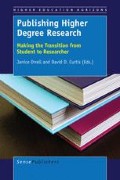Abstract
There has been a rapid and extensive uptake of mobile phones in remote Aboriginal and Torres Strait Islander communities, regardless of mobile phone coverage or Internet access (Brady et al., 2008; Featherstone, 2011). Kral (2014, p. 6f) stated “people, predominantly young people, [are] buying laptops, mobile phones and even iPads or Tablets”. Recent figures indicate Australia wide, 70% of Aboriginal and Torres Strait Islander people own a smartphone, and in remote communities 43% of Aboriginal and Torres Strait Islander people own a smartphone (MIR, 2014). What fosters and nurtures this embracing of mobile technologies?
Access this chapter
Tax calculation will be finalised at checkout
Purchases are for personal use only
Preview
Unable to display preview. Download preview PDF.
References
Arabena, K. (2008). Indigenous epistemology and wellbeing: Universe referent citizenship: Research discussion paper 22. Canberra: G. Ward, AIATSIS.
Arbon, V. (2008). Arlathirnda Ngurkarnda Ityirnda Being-Knowing-Doing: De-colonising Indigenous tertiary education. Teneriffe: Post Pressed.
Baran, E. (2014). A review of research on mobile learning in teacher education. Educational Technology & Society, 17(4), 17–32.
Brady, F. R., Dyson, L. E., & Asela, T. (2008, 24–27 June 2008). Indigenous adoption of mobile phones and oral culture. Paper presented at the Sixth International Conference on Cultural Attitudes Towards Communication and Technology, Nimes, France.
Donovan, M. (2007). Can information communication techological tools be used to suit Aboriginal learning pedagogies? In L. E. Dyson, M. Hendriks, & S. Grant (Eds.), Information technology and indigenous people (pp. 93–104). Hershey: Idea Group.
Featherstone, D. (2011). The Ngaanyatjarra Lands Telecommunications Project: A quest for broadband in the Western Desert. Telecommunications Journal of Australia, 61(1), 4.1–4.25.
Ford, P. L. (2010). Aboriginal knowledge, narratives & Country: Marri Kunkimba Putj Putj Marrideyan. Tenneriffe: Post Pressed.
Guenther, J., & McRae-Williams, E. (2012). Making the most of technologies for learning in remote context. VOCAL, The Australian Journal of Vocational Education and Training in Schools, 9(2011–2012), 88–95.
Huijser, H., & Bronnimann, J. (2014). Exploring the opportunities of social media to build knowledge in learner-centered Indigenous learning spaces. Educating in dialog: Constructing meaning and building knowledge with dialogic technology, 24, 97.
Johnson, G. M., & Oliver, R. (2013). Cognition, literacy and mobile technology: A conceptual model of the benefits of smartphones for Aboriginal students in remote communities. Paper presented at the World Conference on Educational Multimedia, Hypermedia and Telecommunications.
Kearney, M., Schuck, S., Burden, K., & Aubusson, P. (2012). Viewing mobile learning from a pedagogical perspective. Research in Learning Technology, 20. doi:10.3402/rlt.v20i0/14406
Kral, I. (2011). Youth media as cultural practice: Remote Indigenous youth speaking out loud. Australian Aboriginal Studies, 1, 4–16.
Kral, I. (2014). Shifting perceptions, shifting identities: Communication technologies and the altered social, cultural and linguistic ecology in a remote indigenous context. The Australian Journal of Anthropology, 25(2), 171–189.
Kral, I., & Schwab, R. G. (2012). Learning spaces: Youth, literacy and new media in remote indigenous Australia. Retrieved from http://epress.anu.edu.au/wp-content/uploads/2012/08/whole1.pdf
Martin, K. L. (2008). Please knock before you enter: Aboriginal regulation of Outsiders and the implications for researchers. Teneriffe: Post Pressed.
MIR. (2014). Media usage amongst Aboriginal and Torres Strait Islander people. Crows Nest: McNair Ingenuity Research.
Nakata, M. N. (2007). Disciplining the savages: Savaging the disciplines. Canberra: Aboriginal Studies Press. Nakata, M. N. (2010). The cultural interface of Islander and scientific knowledge. Australian Journal of Indigenous Education, 39(Supplement), 53–57. Retrieved from http://search.informit.com.au/fullText;;dn=473613845054948;;res=IELIND
Yunkaporta, T. (2009). Aboriginal pedagogies at the cultural interface. (Doctorate of Education), James Cook University. Retrieved from http://researchonline.jcu.edu.au/10974/2/01thesis.pdf
Author information
Authors and Affiliations
Editor information
Editors and Affiliations
Rights and permissions
Copyright information
© 2016 Sense Publishers
About this chapter
Cite this chapter
Townsend, P., Halsey, J.R., Guenther, J. (2016). Mobile Learning Congruencies with Aboriginal and Torres Strait Islander Cultural Philosophies. In: Orrell, J., Curtis, D.D. (eds) Publishing Higher Degree Research. Higher Education Horizons. SensePublishers, Rotterdam. https://doi.org/10.1007/978-94-6300-672-9_3
Download citation
DOI: https://doi.org/10.1007/978-94-6300-672-9_3
Publisher Name: SensePublishers, Rotterdam
Online ISBN: 978-94-6300-672-9
eBook Packages: EducationEducation (R0)

